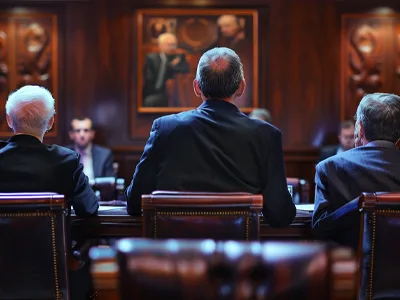The bill would give the tribes a complete monopoly on online gambling
Maine’s federally recognized tribes are pushing for exclusive control over online poker and casino gaming through a new legislative proposal. The bill, known as HP 769, seeks to allow the Wabanaki tribes to operate online gambling, a move that has drawn both strong support and fierce opposition.
If passed, the measure would mark a major shift in Maine’s gaming industry, granting the Penobscot Nation, Passamaquoddy Tribe, Houlton Band of Maliseet Indians, and the Mi’kmaq Nation exclusive rights to offer online casino-style games. This follows a similar law enacted in 2022, which gave the tribes control over mobile sports betting. A comparable proposal failed by a narrow margin last year in the state legislature.
Supporters argue that the bill is a step toward economic fairness. Rep. Aaron Dana of the Passamaquoddy Tribe emphasized that it would allow the tribes to benefit from an industry that has boosted the economies of Indigenous communities in other states. Rep. Ambureen Rana echoed this sentiment, pointing to the financial struggles the tribes continue to face despite broader economic growth in the country.
However, Maine’s commercial casino operators are voicing concerns. Representatives from Hollywood Casino in Bangor and Oxford Casino argue that online gaming would hurt their businesses by diverting players away from brick-and-mortar establishments. Last year, Maine’s casinos contributed over $70 million in tax revenue, and they fear that shifting gaming revenue online could reduce their financial impact on the state.
Under HP 769, the tribes would be required to pay a 16% tax on gaming revenue, with funds directed toward programs such as gambling addiction treatment and veterans’ services. The debate over the bill continues, as lawmakers weigh the potential economic benefits for the tribes against concerns from existing gaming operators.

